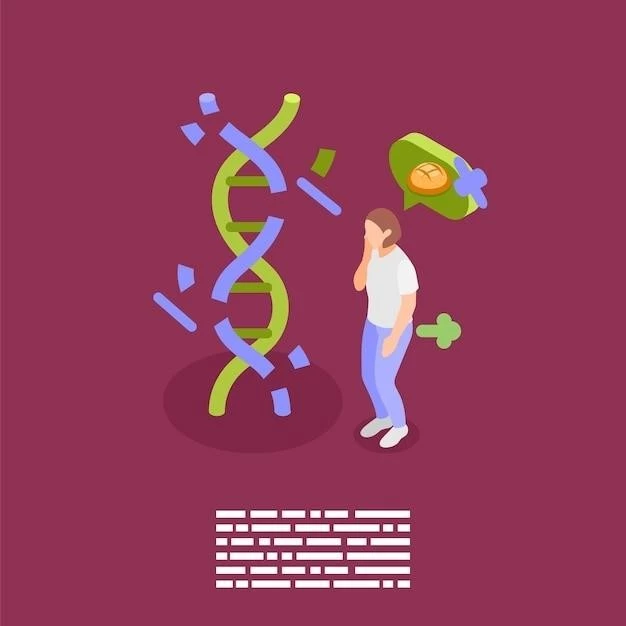Understanding Monosomy 4q and Chromosome 4 Deletion
Monosomy 4q can be caused by a deletion in the long arm of chromosome 4. Chromosome 4 deletion manifests with various symptoms depending on the size and location of the missing genetic material. Understanding the causes is crucial for accurate diagnosis and appropriate treatment.
Causes of Monosomy 4q
Monosomy 4q is primarily caused by deletions or missing genetic material on the long arm of chromosome 4. These deletions can occur spontaneously during the formation of reproductive cells or may be inherited from a parent who carries a chromosomal rearrangement.
Environmental factors or lifestyle choices do not typically contribute to monosomy 4q. However, it is essential to consult with a genetic counselor or healthcare professional for a thorough evaluation of the specific genetic factors involved in each case of monosomy 4q.
Understanding the underlying genetic causes of monosomy 4q is essential for accurate diagnosis٫ appropriate treatment planning٫ and genetic counseling. Stay informed and seek professional guidance for a comprehensive approach to managing this chromosomal condition.
Symptoms of Chromosome 4 Deletion
Chromosome 4 deletion can lead to a range of symptoms depending on the size and location of the missing genetic material. Common symptoms may include developmental delays, intellectual disabilities, distinctive facial features, heart defects, and skeletal abnormalities.
Individuals with chromosome 4 deletions may also experience speech and language delays, vision or hearing problems, and behavioral challenges. It is important to note that the manifestation and severity of symptoms can vary widely among affected individuals.
If you or a loved one exhibit any concerning symptoms that may indicate chromosome 4 deletion, seek evaluation and diagnosis from a healthcare professional or genetic specialist. Early detection can facilitate timely intervention and support for managing the associated symptoms and improving quality of life.
Diagnosis of Monosomy 4q
Diagnosing Monosomy 4q typically involves genetic testing such as chromosomal microarray analysis (CMA) or fluorescent in-situ hybridization (FISH) to identify deletions or abnormalities on chromosome 4. These tests can pinpoint specific genetic changes associated with Monosomy 4q.
Medical professionals may also perform physical examinations, review medical history, and assess developmental milestones to aid in the diagnosis of Monosomy 4q. It is crucial to consult with a geneticist or genetic counselor for a comprehensive evaluation and interpretation of test results.
Early diagnosis of Monosomy 4q is essential for initiating appropriate interventions and support services tailored to address the individual’s specific needs. If there are concerns about Monosomy 4q or chromosomal abnormalities٫ seek guidance from healthcare professionals to navigate the diagnostic process effectively.
Treatment Options for 4q Monosomy
Management of Monosomy 4q focuses on addressing individual symptoms and providing comprehensive care tailored to the patient’s needs. Treatment options for 4q Monosomy may involve a multidisciplinary approach٫ including interventions from various healthcare professionals.
Therapies such as speech therapy, physical therapy, occupational therapy, and educational support can help individuals with Monosomy 4q reach their full potential and improve their quality of life. Medical interventions may be required to address specific health issues associated with the condition.
Regular monitoring by healthcare providers is crucial to track progress, adjust treatments as needed, and address any emerging concerns. Families and caregivers should work closely with healthcare professionals to develop a personalized treatment plan that best supports the individual with 4q Monosomy.
Genetic Counseling for Chromosome 4 Conditions
Genetic counseling plays a crucial role in understanding and managing chromosome 4 conditions, including Monosomy 4q. As these conditions can have diverse implications for individuals and families, genetic counseling provides valuable support, information, and guidance.
During genetic counseling sessions, individuals can learn about the specific genetic changes associated with chromosome 4 conditions, potential health risks, and available testing options. Counselors can help families navigate complex medical information, make informed decisions, and explore reproductive options.
Genetic counseling also offers emotional support, helping individuals and families cope with the challenges of living with a chromosomal condition. By engaging in genetic counseling, individuals affected by chromosome 4 deletions can gain knowledge, resources, and empowerment to make informed choices about their healthcare and family planning.
Research Advances in Monosomy 4q
Ongoing research on Monosomy 4q aims to deepen our understanding of this chromosomal condition and improve diagnostic techniques and treatment options. Scientists and healthcare professionals are actively investigating the genetic mechanisms underlying Monosomy 4q.
Recent research advances have led to the development of more precise genetic testing methods, such as next-generation sequencing, which can identify specific gene deletions associated with Monosomy 4q. Additionally٫ studies are exploring targeted therapies and interventions to address the unique challenges faced by individuals with this condition.
By staying informed about the latest research findings and participating in research studies when possible, individuals and families affected by Monosomy 4q can contribute to advancements in the field and potentially benefit from emerging treatments and therapies. Collaborating with healthcare providers and research institutions can help drive progress in understanding and managing Monosomy 4q.
Living with Chromosome 4 Deletion
Living with Chromosome 4 Deletion can present unique challenges, but with the right support and resources, individuals affected by this condition can lead fulfilling lives. It is essential to prioritize holistic care addressing physical, developmental, and emotional needs.
Building a strong support network that includes healthcare providers, therapists, educators, and support groups can offer valuable assistance and guidance. Encouraging independence, celebrating achievements, and fostering a positive environment can enhance the well-being of individuals with Chromosome 4 Deletion.

Embracing individual strengths, fostering open communication, and maintaining a proactive approach to healthcare can empower individuals and families facing the challenges of Chromosome 4 Deletion. By embracing a personalized care plan and advocating for comprehensive support, individuals can navigate the complexities of this condition with resilience and positivity.
Support Groups for Monosomy 4q
Joining support groups specifically tailored for individuals and families affected by Monosomy 4q can provide a sense of community, understanding, and shared experiences. These groups offer emotional support, valuable information, and a platform to connect with others facing similar challenges.
Through support groups, individuals can exchange insights, learn about coping strategies, and access resources that can aid in navigating the complexities of Monosomy 4q. Connecting with others who understand the everyday obstacles and triumphs associated with the condition can be immensely beneficial.
Online forums, local support groups, and national organizations dedicated to Monosomy 4q can serve as valuable sources of support and solidarity. By actively engaging with support networks, individuals and families can find comfort, guidance, and empowerment in their journey with Monosomy 4q.
